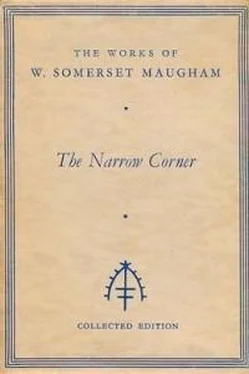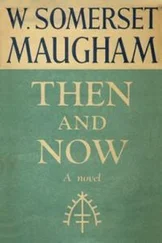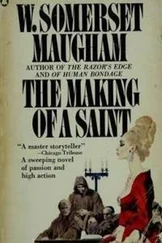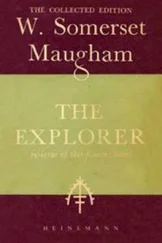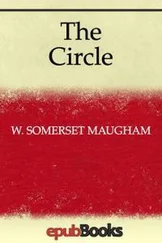“Going to dine at the hotel, Fred?” he asked.
“I’d ask you both to stay and have pot–luck with me here,” said the Dane, “but I’m going up to have supper with Frith.”
“Well, we’ll be toddling.”
The doctor and Fred walked a few steps in silence along the dark street.
“I don’t want any dinner,” the boy said suddenly. “I can’t face Nichols to–night. I’m going for a tramp.”
Before Dr. Saunders could answer he had turned on his heel and rapidly walked away. The doctor shrugged his shoulders and continued on his unhurried way.
HE was drinking a gin pahit before dinner, on the verandah of the hotel, when Captain Nichols strolled up. He had washed and shaved, he was wearing a khaki stengah–shifter, with his topi set at a rakish angle, so that he looked quite spruce. He reminded you of a gentlemanly pirate.
“Feelin’ better to–night,” he remarked as he sat down, “and quite peckish, to tell you the truth. I don’t believe the wing of a chicken could do me any ’arm. Where’s Fred?”
“I don’t know. He’s off somewhere.”
“Lookin’ for a girl? I don’t blame him. Though I don’t know what he thinks he’s goin’ to find in a place like this. Risky, you know.”
The doctor ordered him a drink.
“I was a rare one for the girls when I was a young fellow. Got a way with me, you know. The mistake I made was to marry. If I ’ad my time over again … I never tell you about my old woman, doc.”
“Enough,” said the doctor.
“That’s impossible. I couldn’t do that, not if I was to tell you about ’er till to–morrow morning. If ever there was a devil in ’uman form, it’s my old woman. I ask you, is it fair to treat a man like that? She’s directly responsible for my indigestion; I’m just as sure of that as I am that I’m sittin’ and talkin’ to you. It’s ’umiliatin’, that’s what it is. I’m surprised I ’aven’t killed her. I would ’ave, too, only I know that if I was to start anything, and she said to me: ‘You put that knife down, captain,’ I’d put it down. Now I ask you, is it natural? And then she’d just start on me. And if I was to edge towards the door, she’d say: ‘No, you don’t, you stay ’ere till I’ve said all I’ve got to say to you, and when I’ve finished with you, I’ll tell you.’”
They dined together, and the doctor lent a sympathetic ear to the recital of Captain Nichols’ domestic infelicity. Then they sat again on the verandah, smoking Dutch cigars, and drank Schnapps with their coffee. Alcohol mellowed the skipper, and he grew reminiscent. He told the doctor stories of his early days on the coast of New Guinea and about the islands. He was a racy talker, with an ironic vein of humour, and it was diverting to listen to him, since false shame never tempted him to depict himself in a flattering light. It never occurred to him that anyone would hesitate to diddle another if he had the chance, and he felt just the same satisfaction in the success of a dirty trick as a chess–player might in winning a game by a bold and ingenious move. He was a scamp, but a courageous one. Dr. Saunders found a peculiar savour in his conversation when he remembered the splendid self–confidence with which he had weathered the storm. It had been impossible then not to be impressed by his readiness, resource and coolness.
Presently the doctor found occasion to slip in a question that had been for some time on the tip of his tongue.
“Did you ever know a fellow called Patrick Hudson?”
“Patrick ’udson?”
“He was a resident magistrate in New Guinea at one time. He’s been dead a good many years now.”
“That’s a funny coincidence. No, I didn’t know ’im. There was a fellow called Patrick ’udson in Sydney. Come to a sticky end.”
“Oh?”
“Yes. Not so very long before we sailed. The papers was full of it.”
“He might have been some relation of the man I mean.”
“He was what they call a rough diamond. Been a railway man, they said, and worked ’is way up. Took up politics and all that. He was member for some place. Labour, of course.”
“What happened to him?”
“Well, ’e was shot. With his own gun, if I remember right.”
“Suicide?”
“No, they said ’e couldn’t ’a’ done it ’imself. I don’t know any more than you do what ’appened, on account of my leavin’ Sydney. It made quite a sensation.”
“Was he married?”
“Yes. A lot of people thought ’is old woman done it. They couldn’t prove anythin’. She’d been to the pictures, and when she come ’ome she found ’im lyin’ there. There’d been a fight. The furniture was all over the shop. I never thought it was ’is old woman meself. My experience is they don’t let you off so easy. They want to keep you alive as long as they can. They ain’t going to lose their fun by puttin’ you out of your misery.”
“Still, a lot of women have murdered their husbands,” objected the doctor.
“Pure accident. We all know that accidents will ’appen in the best regulated families. Sometimes they get careless and go too far, and then the poor bastard dies. But they don’t mean it. Not them.”
DR. SAUNDERS was fortunate in this that, notwithstanding the several deplorable habits he had, and in some parts of the world they would certainly have been accounted vices ( vérité au delà des Alpes, erreur ici ), he awoke in the morning with a clean tongue and in a happy frame of mind. He seldom stretched himself in bed, drinking his cup of fragrant China tea and smoking the first delicious cigarette, without looking forward with pleasure to the coming day. Breakfast in the little hotels in the islands of the Dutch East Indies is served at a very early hour. It never varies. Papaia, œufs sur le plat , cold meat, and Edam cheese. However punctually you appear, the eggs are cold; they stare at you, two large round yellow eyes on a thin surface of white, and they look as if they had been scooped out of the face of an obscene monster of the deep. The coffee is an essence to which you add Nestle’s Swiss Milk brought to a proper consistency with hot water. The toast is dry, sodden and burnt. Such was the breakfast served in the dining–room of the hotel at Kanda and hurriedly eaten by silent Dutchmen, who had their offices to go to.
But Dr. Saunders got up late next morning, and Ah Kay brought him his breakfast out on the verandah. He enjoyed his papaia, he enjoyed his eggs, that moment out of the frying–pan, and he enjoyed his scented tea. He reflected that to live was a very enjoyable affair. He wanted nothing. He envied no man. He had no regrets. The morning was still fresh and in the clean, pale light the outline of things was sharp–edged. A huge banana just below the terrace with a haughty and complacent disdain flaunted its splendid foliage to the sun’s fierce heat. Dr. Saunders was tempted to philosophize: he said that the value of life lay not in its moments of excitement but in its placid intervals when, untroubled, the human spirit in tranquility undisturbed by the recollection of emotion could survey its being with the same detachment as the Buddha contemplated his navel. Plenty of pepper on the eggs, plenty of salt and a little Worcester sauce, and then when they were finished a piece of bread to soak up the buttery remains, and that was the best mouthful of all. He was intent on this when Fred Blake and Erik Christessen came swinging down the street. They leaped up the steps and, throwing themselves on chairs at the doctor’s table, shouted for the boy. They had started for their walk up the volcano before dawn, and were now ravenous. The boy hurried out with papaia and a dish of cold meats, and they finished this before he brought them eggs. They were in great spirits. The enthusiasm of youth had ripened the acquaintance made the day before into friendship, and they called one another Fred and Erik. It was a stiff climb and the violent exercise had excited them. They talked nonsense and laughed at nothing. They were like a couple of boys. The doctor had never seen Fred so gay. He was evidently much taken with Erik, and the companionship of someone only a little older than himself had loosened his constraint so that he seemed to flower with a new adolescence. He looked so young that you could hardly believe he was a grown man, and his deep, ringing voice sounded almost comic.
Читать дальше
Конец ознакомительного отрывка
Купить книгу
